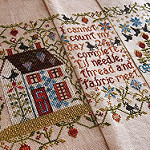Know what your agency wants to fund and position your idea so that its relationship to that mission is obvious.
Steps to writing a winning grant:
Use your professional knowledge to identify a significant and current problem, gap, or need.
Come up with a creative solution to that problem.
Run it by your trusted colleagues (and actually take their advice).
Adapt your proposal based on feedback.
Reviewers will not work hard at understanding your proposal, that’s on you. They’re not looking for reasons to fund applications, they’re looking for easy reasons to shoot them down.If you can ever influence the assignment of your grant to a study session, do it. Don’t leave it up to fate.
Risky ideas and concepts are difficult to get funded. If it can’t be backed up by the existing literature and your own preliminary data, there’s too much risk. Once it is a confirmed, newly established idea, it’s very likely to get published. Reviewers are looking for something that will have a significant impact, once an idea becomes well-studied, the potential knowledge gained by the grant will be incremental and it’s less likely to be funded.
If you’re trying to fund something new and risky, it’s helpful to set yourself up as credible through publication and preliminary research.
After your idea, the next most important factor is commitment. Show your commitment through your attention to current literature, and show that you have the resources to succeed. Seek out, accept, and react positively to criticism. Be passionate about your research.
Getting rejected is feedback too. Use it to improve.
There are a hundred reasons why grants fail and only one reason why they succeed: they are important, feasible, and relevant to the mission of the funding agency.
You have to sell your idea to your reviewers: be enthusiastic, clear, knowledgeable, and aware of the field. Offer something that nobody else can.
Program officers are there to help you. Talk to them! They can help you choose your funding mechanism, make your idea more relevant, help you complete your application correctly, give you feedback on your proposal’s review, and act as an advocate for you. But! Don’t start communicating with program officers until you have a solid idea and are ready to have a meaningful discussion.
Before you start writing, create a plan and schedule. Starting six months before the deadline is a good goal.
The overview section should include everything exciting and novel about your project in a neat little package. Never go over 1.5 pages. This is the most important section of your proposal, no pressure.
Your opening sentence should ensnare the reviewer to become an advocate for your proposal. It should not be overly technical, but should identify the purpose of the proposal and immediately relate it to the agency’s mission.
All key points must be addressed in the first paragraph.
The body of important knowns must make the case for the critical need. “We know all of this already, but because we still don’t know this current unknown, we cannot do this important thing.”
You must convince your reviewers that your idea is worthy by the end of your first paragraph. If you have not, the rest of the proposal is a waste.
Your long term goal has to be feasible and specific.
Your overall objective must address the critical need you’re trying to fulfill.
Avoid “look-to-see” objectives. Your actual goal is not to do the research, but to find the conclusion.
The game of writing good grants is not giving reviewers opportunities to reject you.
You should write the introductory paragraph last, after you know what’s going on.
Unlike your publications, reviewers are reading your proposal because they have to, not because they want to. You have to go the extra mile to make it interesting.
You can copy and paste important bits like your hypothesis within the document. Consistency is key for understanding.
It’s okay to italicize and underline things in your proposal to draw the reviewer’s attention to them, just don’t do this too much.
The biographical sketch has to prove that you and your team have ALL the required expertise to pull off EVERYTHING you have proposed.
If people are contributing effort but not requesting salary, they are resources, not personnel.
Make a list of all the keywords your proposal touches on, arrange them in several ways and ask a group of your colleagues to pick their favorite for a title.
Use your colleagues for pre-submission review. Pick colleagues who will give you big picture, critical changes. Never ask for comment while you’re still making changes.
Reviewer friendly proposals have readable text, separated paragraphs, legible figures, and a clear organizational structure!
The library can help support your grant writing efforts through research and data advisement. See our LibGuide on Research Data for information on data management and preservation. The upcoming library workshop, “Getting Published: Preparing Your Research for Publication” on 10/21 also has information about finding and applying for grant funding.
Grant writing is a skill that requires designated time, patience, grit, and practice. This was a great professional development opportunity offered by the OVPR and I hope they are able to offer it again next year. Please let me know if you’d like to discuss the workshop or see the materials. I’m also, of course, happy to go over any cross stitch patterns for your upcoming embroideries.
Image: “Loose Feathers Mystery Sampler” Blackbird Designs by wakana b via Flickr
